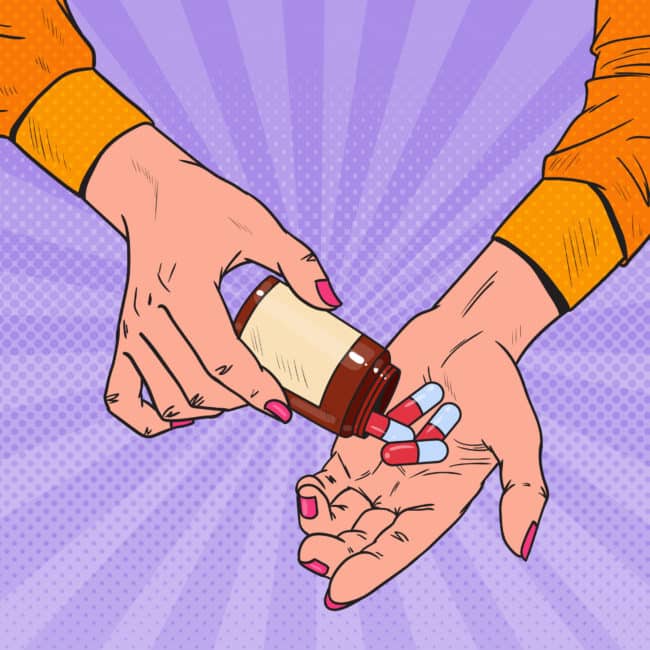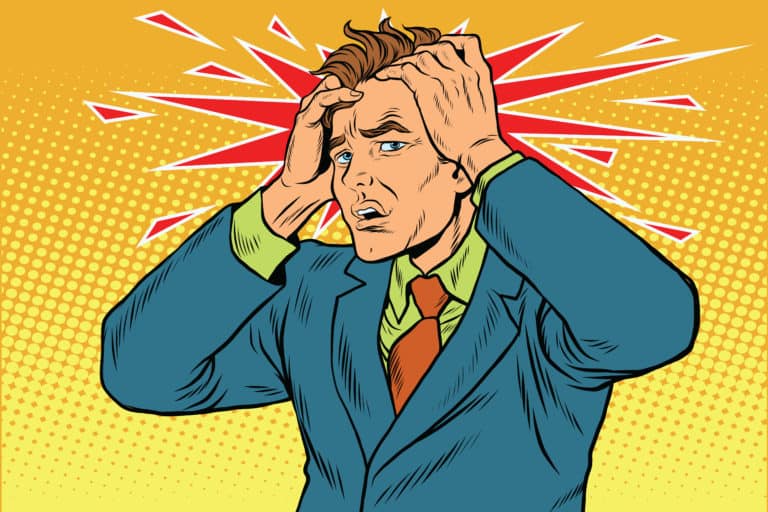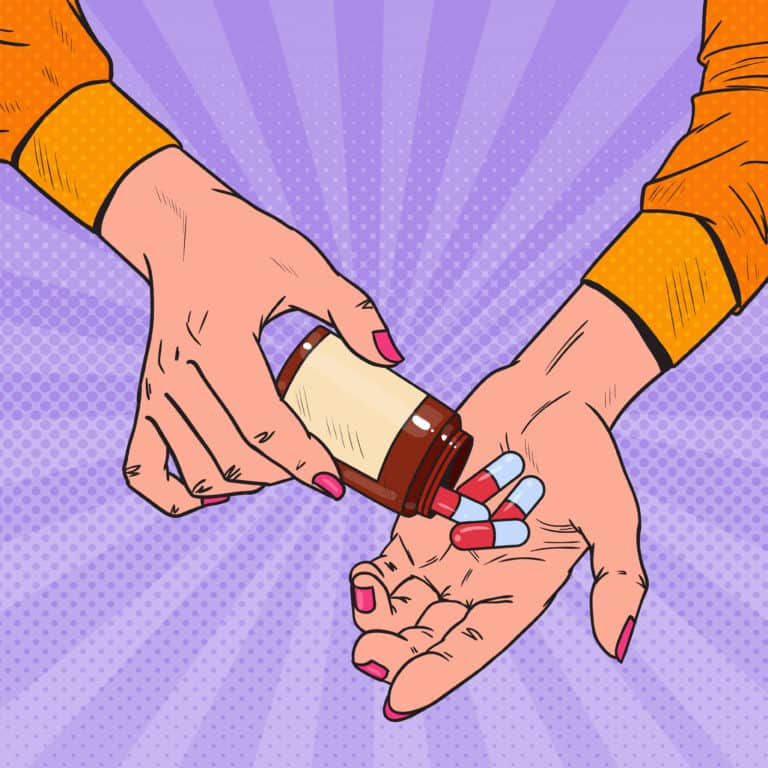Is ADHD just bad behaviour?
The answer to this question is not simple. There are many factors to consider when trying to determine if ADHD is just bad behaviour or a real disorder. Some people believe that ADHD is a real disorder, while others believe it is simply bad behaviour. The truth likely lies somewhere in between.
When it comes to ADHD, there is no shortage of controversy. On one side are those who insist that ADHD is nothing more than bad behaviour, and on the other are those who maintain that ADHD is a real disorder with discernible brain wave activity. Amidst all this discussion is the quiet voice that questions the disciplinary practices of parents of children with ADHD.
Sceptics of ADHD argue that the disorder is nothing more than bad behaviour that has been medicalised. They point to the fact that there is no definitive test for ADHD, and that symptoms can be subjective. They also claim that the diagnosis of ADHD is on the rise because it provides a convenient excuse for parents who cannot control their children’s behaviour.
“Why can’t people be held accountable for their actions?”
“All children diagnosed with ADHD really need is tough love.”
“Pharmaceutical companies created the disease we now call ADHD to peddle their drugs.”
These are all valid questions and concerns. However, they fail to take into account the fact that ADHD is a real disorder with very real symptoms.
Just because there is no definitive test for ADHD does not mean that it does not exist. And while some parents may use the diagnosis as an excuse, many more are simply trying to understand and help their children.
The “ADHD is Fake” Approach
Some people think that ADHD isn’t a real disorder and that it’s just something created by the pharmaceutical industry to make money.
Is ADHD real or an excuse?
The most common reason behind scepticism is, “Almost everyone experiences the symptoms of ADHD to some degree. If we look for those ADHD indicators in people, the majority of them have it.”
It’s wrong to claim that “everybody” has a “small amount” of ADHD. It’s also hurtful and dismissive of people with ADHD and their actual difficulties on a daily basis.
ADHD stigma affects those with the condition as well as their families.
Symptoms of ADHD can vary from person to person, with some experiencing mild symptoms while others experience severe ones. It’s important to note that many of the symptoms associated with ADHD are actually typical human behaviours. For example, most people lose their keys on occasion or have trouble delaying gratification.
The symptoms of ADHD are persistent and they typically begin in childhood. ADHD is not a phase that kids “grow out” of, as some people mistakenly believe.
Some people in the medical field think that ADHD is not an actual disorder. They believe it is something that kids develop from their environment (like at home or school) or from having too high of expectations put on them.
We don’t question the legitimacy of wheelchair users or people with heart conditions, so why do we question the legitimacy of ADHD? Just because we don’t understand something doesn’t mean it isn’t real. Do headaches and migraines only exist in people’s heads? No, of course not. And yet, there are still some people who think that ADHD is all in a person’s head.
Those who believe that ADHD isn’t real frequently point to potentially severe and even deadly side effects of stimulants, which include sleepiness, headaches, stomach aches, loss of appetite, increased blood pressure, and aggression.
The “manufactured disorder” approach points to the business of ADHD. Some argue that children with ADHD often develop symptoms when they start school. This, according to these individuals, could be due to the presence of a code of behaviour that the child is unable or unwilling to adhere to. Consequently, the child would be diagnosed with ADHD.
Those who feel that ADHD is made up are concerned about the fact that children with ADHD symptoms are given prescription drugs while their home environment and parental coaching aren’t considered. Some doctors who deny the reality of ADHD maintain that it isn’t over diagnosed or misdiagnosed; they say it does not exist at all.
What is the clinical definition of ADHD?
Attention deficit hyperactivity disorder (ADHD) is a neurodevelopmental condition that commonly appears during childhood. It’s characterised by behaviours indicating developmentally inappropriate levels of inattention, hyperactivity, and impulsivity that are pervasive and cause significant functional impairment in several areas of life.
Do the majority of people have symptoms of ADHD?
“Developmentally inappropriate level of” means that those behaviours indicating expression of inattention/hyperactivity/impulsivity cannot be defined as “symptoms” per se and therefore be compatible with a diagnostic hypothesis of an ADHD syndrome. For that age range, they must diverge significantly from what is expected in terms of attention and/or hyperactivity-impulsivity.
It may be acceptable for a certain age group to have a decreased capacity to control responses (e.g. saying something without thinking about the consequences) or a reduced capacity to block out distractions (e.g. the ability to focus on a goal-oriented task).But, years of research into executive functions tell us that the above skills should be well developed in adults.
In conclusion, if we only use the “developmentally inappropriate level of” criteria, then it would be inaccurate to say that “everyone has ADHD.” We would only be able to make this statement if we believe that most of the general population does in fact exhibit symptoms of inattention and/or hyperactivity-impulsivity which deviate from what is generally expected for their age. Commonly, what is considered a symptom of ADHD by those who think ADHD does not exist are NOT in fact symptoms of the disorder.
The “ADHD is Real” Approach
On the other side of the debate are those who argue that ADHD is a real disorder with discernible brain wave activity. This camp tends to be made up of medical professionals and people with ADHD and is backed by years of research from across the world.
A number of studies have found that people with ADHD tend to have lower activity in the frontal lobe of their brain. This area is responsible for planning, organisation, and self-control.
ADHD also appears to run in families, which suggests that there may be a genetic component to the disorder. In addition, brain imaging techniques have shown differences in the brains of people with ADHD compared to those without the disorder.
The notion that ADHD is a character flaw or the consequence of poor discipline, according to advocates of the “real disease” theory, is simple. They compare it to the difficulties that people with depression encounter when friends, family, and co-workers attempt to “cheer them up,” only to be met with failure.
Children with ADHD don’t only display symptoms during school hours, but all day long in every situation. It’s a continual part of their lives that does not go away with medication or with age.
ADHD is a neurological condition, a difference in the brain that affects how it functions. This difference is usually genetic, which means it’s passed down in families. Research shows that ADHD runs in families, and scientists have found genes that are linked to the disorder. MRI scans of people with ADHD show differences in the brain compared to those without ADHD.
The condition impedes the brain’s self-regulatory functions. Neurological studies reveal many contrasts in the ADHD brain: its structure, volume, chemical activity, and communication pathways differ from those without ADHD.
ADHD and The Role of Discipline
While there are helpful tips for parents as to how best to discipline their ADHD child, experts note that lack of discipline is not likely the cause of the disorder nor the solution to correcting it.
The most effective discipline is positive reinforcement, which helps the child learn what behaviours are expected of them. This can include verbal praise, stickers, and small toys as rewards for good behaviour. For children with ADHD, it’s important to be consistent with discipline and to avoid power struggles.
It’s also crucial to avoid reacting to bad behaviour in the heat of the moment. This means staying calm and avoiding yelling or threats. Instead, try to redirect your child’s attention to something positive.
It’s essential to remember that ADHD is an authentic disorder and not just bad behaviour. Individuals with ADHD cannot help their symptoms, no matter how much they try.
There are many myths surrounding the causes of ADHD – like eating too much sugar or playing video games – but none of these have been proven. And smacking has never helped anyone with any sort of problem, let alone one as complex as ADHD. With the right support, children with ADHD can learn how to manage their symptoms and lead happy, successful lives.








